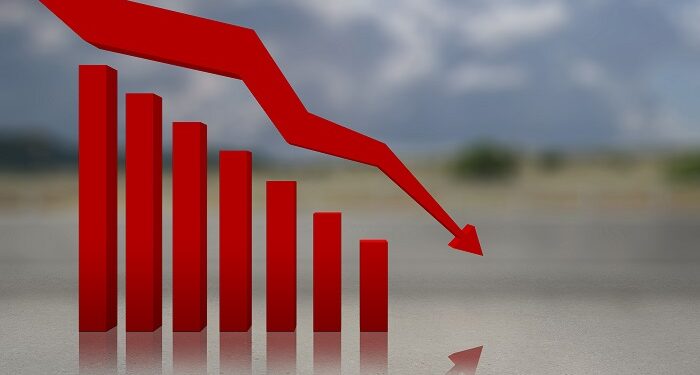Ghana’s headline inflation continued its downward trajectory for the fourth consecutive month, easing to 21.2% in April 2025 from 22.4% in March, according to new data released by the Ghana Statistical Service (GSS).
However, persistently high food inflation and renewed monthly price pressures suggest that inflationary risks remain, warranting careful policy navigation.
At a press briefing in Accra on Tuesday, Government Statistician Dr. Alhassan Iddrisu attributed the decline to slowing price increases across both food and non-food categories. “Year-on-year inflation slowed to 21.2% in April 2025, and this is largely driven by a moderation in both food and non-food prices, though food inflation remains elevated,” he said.
Food inflation stood at 25%, remaining the most significant contributor to overall inflation. Non-food inflation registered 17.9%, providing some cushion to the headline figure. Nonetheless, on a month-to-month basis, inflation rose by 0.8% in April, up from 0.2% in March—an indication that underlying price pressures, particularly from food, could be resurfacing.
Local Production Bottlenecks Driving Inflation Divide
A key highlight from the GSS data was the inflation gap between domestic and imported goods. Locally produced items recorded a year-on-year inflation of 22.7%, compared to 17.7% for imported products. Month-on-month inflation for domestic goods was also double that of imports. This disparity points to internal supply chain inefficiencies, especially in agriculture and distribution, as a dominant force behind elevated price levels.
Read Also: Ghana’s gold reserves hit GH₵46.4bn as BoG strengthens economic shield
Implications for Monetary and Fiscal Policy
The continued easing of headline inflation could give the Bank of Ghana more flexibility in the coming months. The central bank raised its benchmark policy rate in March to anchor inflation expectations but may reassess that stance when the Monetary Policy Committee convenes later this month.
Finance Minister Dr. Cassiel Ato Forson reiterated the government’s confidence in its fiscal strategy, stating that inflation is on course to hit 11.9% by the end of 2025—consistent with medium-term macroeconomic targets.
Policy Recommendations and Social Protection Call
In its latest Consumer Price Index bulletin, the GSS recommended urgent and targeted policy responses to contain food price volatility. This includes intensifying monitoring of inflation-sensitive commodities such as ginger, beans, and vegetable oil, and accelerating the implementation of the Agriculture for Transformation Programme.
“The government must sustain macroeconomic stability measures and strengthen social protection schemes to shield vulnerable groups from the impact of inflation,” Dr. Iddrisu urged. He specifically referenced the Livelihood Empowerment Against Poverty (LEAP) program, National Health Insurance Scheme, Capitation Grant, and school feeding programs as essential tools in cushioning lower-income households.
Guidance for Businesses and Consumers
The GSS also encouraged businesses to consider easing prices or restoring margins in sectors where input costs have stabilized—particularly in food and hospitality. Households were advised to continue exercising financial prudence, especially in anticipating changes in transport and staple food prices.
As Ghana attempts to consolidate its macroeconomic gains, the evolving inflation profile presents both opportunities and challenges. Policymakers now face the delicate task of sustaining the downward trend while protecting the most vulnerable from persistent food price pressures.

























